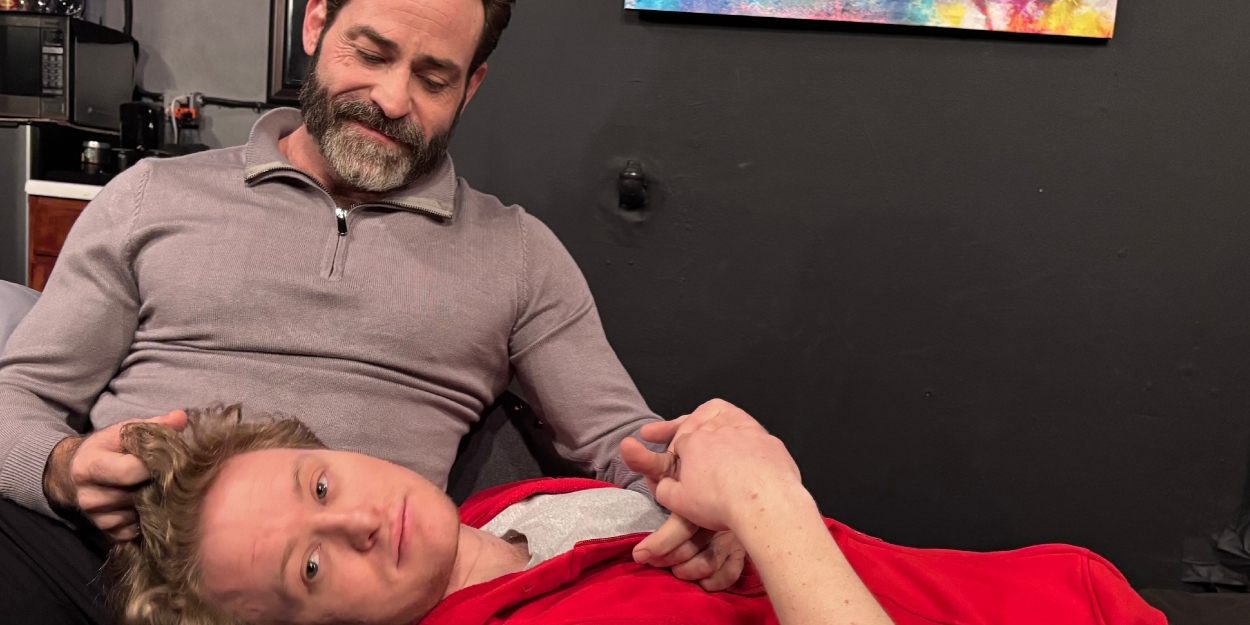Review: MR. PARKER at Open Space Arts
The Chicago premiere runs through March 2.

Open Space Arts in Uptown is quickly establishing itself as the go-to “storefront” theater for plays and films that consider the many nuances of queer experiences, and their latest offering—MR. PARKER—is no exception. Elevated by the sophisticated performance of its leading actor, MR. PARKER presents a compelling portrait of grief and middle-age too often missing from gay narratives these days.
In a tightly plotted ninety minutes, Michael McKeever’s MR. PARKER focuses on the life of Terrence Parker (Andrew Kain Miller) following the recent death of his partner in a car accident. Desperate for connection and intimacy, he brings the 28-year-old Justin (Riley Capp) to his partner’s old art studio for a one-night stand that quickly turns into something more serious. As the days and weeks with Justin pass by, Terry confronts his desire for significance and love in a rapidly changing world that threatens to leave him behind.
Under the direction of David G. Zak, Miller carries the emotional weight of the production with great skill and emotional complexity. His Terry doesn’t wallow in self-pity—an emotional state often intolerable to watch as an audience member—but rather grasps at whatever he can that reminds him of his individuality after so many years spent in the artistic shadow of his other half. The play is punctuated by Terry’s monologues, and it’s a testament to Miller’s skill that he draws meaning from every word and emotional shift.
As Justin, Terry’s younger love interest, Capp provides much needed comic relief with a winsome smile and manic youthfulness that contrasts nicely with Miller’s more mature and grounded performance. That being said, Capp has to work against a script that too often threatens to reduce Justin to a mere caricature of a millennial. The generational difference between Terry and Justin falls into predictable debates over the validity of neo-pronouns and cellphone addiction. These conversations could be grounds for interesting explorations of how disconnected younger queer generations have become from the struggles and advancements of their predecessors. But instead, the generational divide is—perhaps understandably—played for laughs.
More dramatically fulfilling are the debates between Terry and his sister-in-law Cassandra (Mary Anne Bowman). These interactions are actually what drives the central conflict of the play. Cassandra is the executor of her brother’s estate, and she’s attempting to arrange a retrospective exhibition of his art at a prestigious gallery. Terry insists on handling the arrangements himself, but his grief prevents him from confronting the fact that doing so will mean finally acknowledging his husband’s absence. Miller and Bowman approach their interactions with great care, mining the subtext of their conversations to express the jealousy and anger that lies in what remains unspoken between the two. Again, though, it’s a fault of McKeever’s script that their dialogue gets cut short just as it begins to raise interesting points about the nature of art and preserving the legacy of the artist.
While McKeever’s script may occasionally forsake profundity for brevity, Zak’s production of MR. PARKER showcases the impressive talents of seasoned actors and a promising Chicago debut.
Photo Credit: David Zak
Reader Reviews
Videos

